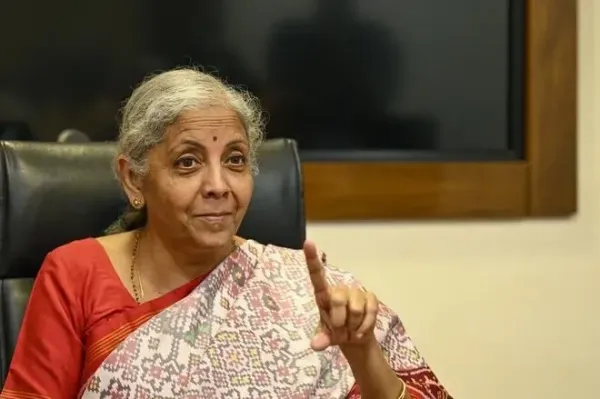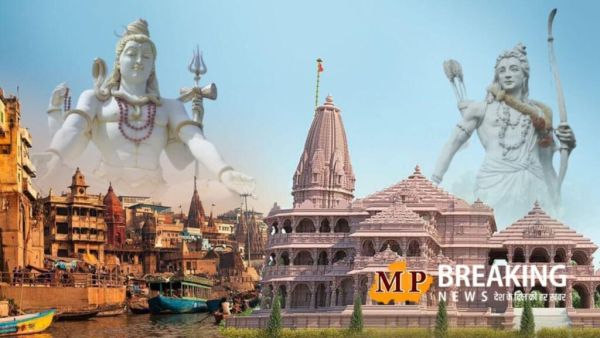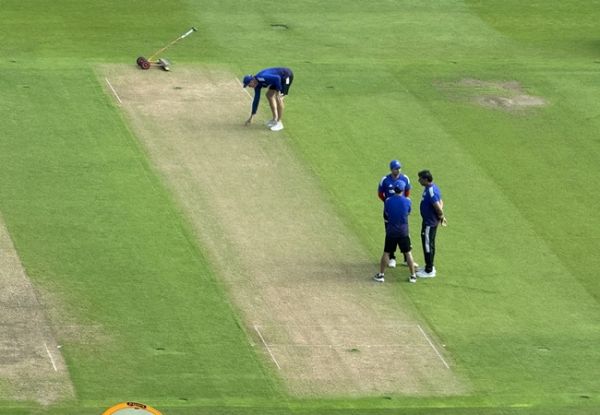We have made the Budget a speaking and transparent document: Finance Minister Sitharaman
admin | June 30, 2025 11:22 PM CST

Finance Ministry has actually been bold and stood the test of being accountable, says Nirmala Sitharaman
Nirmala Sitharaman is now the longest-serving Finance Minister with an uninterrupted stint.
businesslinesat down with her in New Delhi on Saturday for an exhaustive and candid chat. Sitharaman spoke on the resilience of the Indian economy and prospect of growth in these challenging times, on the turnaround of the banking sector, and the silent reforms that she has undertaken in the last six years. Excerpts:
Given the current global scenario, how do you see the economy doing this year? Will it be able to grow at the projected rate?
We will be definitely able to grow. I do see a lot of opportunities for our businesses to grow. We are also, at the macro level, conscious that we need to have more trade agreements, need to open up on very many more sectors, make banks be more amenable for industry and their needs, and make banks understand that credit should be tailored to the requirement of different segments. With all that done, I don't see any reason for us to worry about our growth.
We will continue to be the fastest growing at this number or an even better number. For meeting the challenges, we are periodically sitting and reviewing. There are groups of ministers for different departments for different reasons, and also a committee of secretaries is constantly looking at it. We are confident for this year, and with the monsoon being good, agriculture will definitely come up with a more positive number.
You have completed 11 years as a Minister at the Centre, and you are also the longest-serving Finance Minister without a break. How do you see these 11 years as a Minister?
Several things have been done in the last 11 years. In the finance department alone, since 2014, major reforms have been taken up. If Insolvency and Bankruptcy Code (IBC) and Goods and Services Tax (GST) came in the first term, in the second term, we started following it up with a lot of budgetary transparency and accounting-related issues. We didn't allow any of the outside of Budget borrowings to remain unnoticed; we've made it part of the Budget.
Then the rate at which digitisation has happened in public finance management has actually brought in efficiency with money - majority of which is borrowed. It doesn't get parked in different places, it gets sent just in time. The SNA accounting standards between the Centre and the States is one of the best reforms that could have ever happened in the public finance management. Everybody gets their due, everybody gets their money, and gets it in the right time. No delay. Money is not allowed to be kept parked and, as a result, I'm not increasing the burden on myself in terms of borrowing and leaving it for somebody to earn interest out of it rather than deploying it for the projects that we need.
In a way, if IBC and GST are visible from the outside and are essential for the system, what is hidden are the steps that are making the Budget itself a speaking document; as a document which reveals as much as it says and not as an instrument for fudging government accounts. So, the credibility of the Budget as a reliable, transparent document and together with it, a responsible public finance management in the post-Covid era to a commitment that we will bring the fiscal deficit down, are major steps forward. They normally get lost because they don't have a public interface and they are not the glamorous side of Budget making. But I think that is a big contribution towards responsible management of taxpayers' money.
We started with the IBC and GST and then moved over to more transparent Budget accounting. No external borrowing was left unaccounted for. Many organisations such as the FCI had to be supported. Yet, money was being raised and the government deficit was not being pumped off to oil marketing companies. These are not methods that we adopt anymore here. I would think the major reforms between 2014 and 2019 were IBC and GST and between 2019 and 2024, despite the pandemic, efficient use of taxpayers' money, making Budget as a speaking document and transparent document, these were very important steps over and above managing Covid. So, the Finance Ministry has actually been bold and stood the test of being accountable.
The government amalgamated some public sector banks five years ago. What has been the experience from that? Will there be another round of consolidation, or will you opt to sell some equity in the market?
I am happy about where the banks are today. They actually went through a very, very difficult time soon after 2014. Various steps taken by the government in terms of disciplining them, cleansing their books and also making them a lot more professional in their management have all paid rich dividends. That is why the banks today are able to stand on their feet, and also reach out to the markets for raising money when they want it.
Consolidation has yielded very good results. The experience of both the banks and the customers is really positive. Apprehensions that customers from smaller banks when they've merged with a bigger bank, have all been addressed. There is no differential treatment between customers of one small bank and large customer base of a big bank. Profitability of the banks, the NIMS and also CRAR, are all reflective of the kind of success that the banks have achieved. They are in their best phase and I want them to make sure that during this phase, they extend the credit as much as they can because many of them are sitting with fairly high levels of cash beyond the CRAR. It is not necessary that it should be safely kept. It has to be disbursed to people who need it, and it is the banks' business to extend the credit.
Amalgamation has given us precisely the advantage that we expected get from that exercise. Customers are better off for it. Banks have gained considerable size today. In fact, in a review meeting on June 27, I was happy to see that the SBI business is reaching or crossing ₹96,000 crore, and is soon to touch ₹1 lakh crore. Many banks on their own are expanding their balance sheet because of the various different portfolios they've opened up. Banks are expanding now after the amalgamation on their own inorganically. But India needs a lot more banks. I'm sure with the applications and other things with RBI taking a view, we will welcome more banks in India.
Will there be further consolidation?
At this moment I have nothing [to say].
What about selling equity?
We will honour the public float principle that we have agreed on.
It has been five months since the Budget, and many events have taken place since then. Do the numbers still stand, especially on fiscal deficit? Will you be able to meet your projections given that defence spending has also gone up?
I don't see any major change between the BE (Budget Estimate), as presented in the Budget and now. The demand from defence is not new. And whether there was a demand or not, Prime Minister Modi has been very keen that defence will not be left wanting. Defence's requirements will be met. Since 2014, attention have been given to small and greater details of demands from defence, whether it is bulletproof jackets, mountain motorbikes, getting the goods in time to reach the higher reaches, because they have to stock up for winter, whether you are getting a very complex vector from somewhere; it's been going on smoothly.
Having taken course on Atmanirbhar and production in India, we have reserved quite a few items for procurement from Indian manufacturers, particularly from MSME manufacturers. As a result, Indian defence production itself has seen a different growth and today they are also becoming prominent exporters. Other than exports, the way in which domestic capacities have given us the advantage of buying from India for Indian purposes has actually marked the difference. The technology infusion through startups with drone infusion into the three forces has made a mark during Operation Sindoor. India will only gain more from Atmanirbharta -- giving space to small producers, allowing start-ups to bid for jobs even if they can't prove their previous experience. It has all paid rich dividends. We shall continue with this formulation for defence.
…. but there's no risk to your projections in the Budget from all these developments?
You're asking the question from the standpoint of Operation Sindoor and appears to be a hike. I look at it from the perspective of a start from 2014 onwards during which we have been spending to make up for all that was not given to them earlier. Enhanced requirement of defence has been there for all these years.
Will trade-related disruptions and the troubled situation for exports have any impact on fiscal deficit?
The global challenges have been there for 2-3 years now. Every year, the Budget has faced headwinds. But our exporters are growing and exports are increasing. It might be more than disproportionately increasing in the service sector and not so much in manufacturing. Nevertheless, it is showing an increase. Our exporters have been very nimble-footed. They were able to access newer markets. They were also able to bring in certain efficiencies which gave them the benefit of cost competitiveness. We can see that happening.
You handed out a big tax concession to the middle-class in the Budget. Have you seen any pick-up in consumption in the last five months?
People you meet at an airport or a railway station or somewhere in the market, they say it has made a huge difference, and some of them even say what they're planning to do with that increase - I want to buy a house or I'm willing to upgrade my car or this money will help my son to aspire for a better course or better university. People have already made concrete plans for a big ticket change in their household finances. They are seeing it as a huge relief. And they have calculated and planned accordingly. It will play out this year in such a way that by the time the festivals come, Navaratri or Deepavali, you will see people going out with a bit more positivity.
We are entering the 9th year of GST. What are the immediate things to expect, especially rate rationalisation?
GoMs have done their work. I have gone through them. However, I did tell some of the ministers that I want to get into greater details. My intention was to undertake comprehensive exercise, item by item. We want to look at every rate and wherever reduction is possible, we shall bring those rates down. Equally, we are looking at reducing the number of slabs. What will be the final shape, I can't say but intense work is going on.
Compensation cess is going to end on March 31, 2026. We understand it will be replaced by a different nomenclature such as clean energy cess or cess. Then there will be issues related with sharing. Of course, a GoM is looking into all these, but what you can say?
Cess under GST itself was an anomaly. I fully agreed to compensation, and that was given to the States till 2022. We extended it only for repaying the loans taken for giving compensation. The word cess was introduced there, but in a shareable item, and you are right in saying cess cannot be shareable. One of the ministers in the council meeting pointed out that if it was cess, how would you share it? All this grammar of taxation came in. But aside from that, the revenues that were collected in the name of compensation cess, what are we going to do with it? The committee has looked into. It has come up with some suggestions. We will certainly take those suggestions on board.
GST law prescribes maximum rate can be 40 per cent. So in case compensation cess is withdrawn, will we see higher rate on sin goods?
That will be one of the options that we will have to consider.
What is your plan for disinvestment? After LIC, we have not seen anything major during last two years.
Elections process and formation of new government took up half of 2023 and almost the entire period of 2024. Now that the election is not a big concern, I would like to push on as would the others. Also, market situations determine when you want to come out with a particular privatisation.
…. But will you privatise or sell companies that are not in core sectors?
That was defined in the 2021 Budget itself. What is not core will now be available for sale. We very clear as to where the public sector enterprises will remain - that is the core strategic sectors. In that, we will allow private sector also while the public sector continues. Each department will have to take a call on whether they continue in the same format or they get amalgamated or we drop one of them.
You also have to achieve minimum public shareholding norms in various PSUs, public sector banks and insurance companies. What is happening there?
That activity has been slow. But it has been happening in trickles. It will happen. We are committed to it.
What about LIC in particular which has to achieve 10 per cent public shareholding?
This will happen. But absorption of the market capacity also has to be kept in mind while deciding on whether it is going to happen in one bulk or in phases. What if I release one bulk of LIC? Is that going to do good, or is that going to create a problem?
Can we expect one tranche this fiscal…
That is a decision that will have to factor in all these options. In order to achieve the end result, will they put it as one bulk or will they go piecemeal? It's up to DIPAM and the concerned department.
States want higher devolution and the 16th Finance Commission is still at work. What would be your suggestions to the Finance Commission?
We have already spoken to the Finance Commission once and told them what we expect. We hope to have one more meeting with them in which we will communicate our view especially with regard to central finances. The 14th Finance Commission had made recommendations about rationalising CSS (Centrally Sponsored Schemes). We could wind them up, close them all down. We didn't.
Despite the immediacy because of the shift from 32 per cent to 42 per cent (share of collection from Central levies to be transferred into devolution pool), it was impossible. We tried rationalising them before the next commission came. But there are still a lot of projects which the Centre is financing despite the Central share having come down. There is definitely an issue of Centre borrowing for everything. After all the devolutions and giving away for different categories, it's not left with anything substantial.
Ratings agencies are now doing a review. Do you expect an upgrade?
In many ways, the rating agencies are showing a clear understanding that India is moving forward despite the global challenges. There are critical assessment factors such as energy surplus or availability of credit from the banks, mobility of people while also looking at sustainable ways of doing business. India's own domestic market, whether it is expanding, whether people have the purchasing power in their hands, are factors to which the rating agencies have really applied and are able to see positive signs. I think there will be a lot more reasons governing their judgement.
On crypto regulation, is there any rethink in the government's approach consequent to Donald Trump's ascendancy and his push for cryptos?
No. It is a matter of very high degree of sensitivity. We have to have some kind of consensus about how to frame regulations. And as regards the developments globally, they may happen… But India will have to have its own studied approach.
What is government's thinking on Vodafone issue?
The department is very clear and the Minister [of Communication] has very clearly said he is not expecting a duopoly, it has to be a free market, and we will encourage any number of players. That's the ultimate principle on which the government is working. We are not expecting only a duopoly to run.
What about 8th Pay Commission? Terms of Reference and name of members are yet to be announced?
It must be done soon. I think it will be announced soon.
Since all centrally sponsored schemes are going to be on SNA Sparsh from November 1, 2025, what kind of saving we can expect?
We didn't enter SNA Sparsh with the saving amount in mind. We entered it because of efficiencies. We entered it because we also didn't want to be borrowing endlessly and it has given us that dividend. This year, we have incentivised them through the SASCI (Special assistance to States for Capital Investment) 50 years interest free, which is going to the states
Half of SASCI is tied for digitising accounts, smart meters, land records getting digitised and so on. That incentive shall also continue. We want every scheme to be on SPARSH. Recently, I was in Ladakh and I was happy to know that the Ladakh administration, a Union territory without legislature, was keen in getting on SPARSH. I have actually connected them with the CGA to infuse efficiency.
businessline organised MSME summits in Bengaluru and Coimbatore recently. The industry spoke about how difficult it is to get financing from banks. There were also requests for restoration of some central government schemes such as interest equalisation...
If a scheme comes because it is created on account of a certain situation - because you have to hand hold - I have to continue till that situation continues. But if the situation changes, but you still say that the scheme should continue, that cannot be the case. The presumption is that if a scheme comes, it has to remain and it has to continue. But it is a bad way of managing your money. It needs to be refashioned and reapplied.
That money can be used in a different fashion. You want that money but for what? Tell me if the circumstances have changed. There is some other new problem which has come up and you want that to be soft-padded. But [to say] a scheme should never be closed is not a fair approach. After all, it's the tax-payers money.
. …but the broad point they were making is that they need greater support from the Centre…
I'm not saying what I have done is enough. Unlike any other sector, MSMEs have received consistent support in the last four Budgets. We have now given even sovereign guaranteed funds. Till now, MSMEs received only working capital. Now, we are giving money even for plant and machinery and they're guaranteed. There are several more such things which have come for MSMEs. I hope they have got to know about it and they would use it. Even then if there are issues, we will certainly address it.
Post the Court order, MGNREGA has to be implemented in West Bengal from July 1, but there is one issue about the allocation. For the first half of this fiscal, MGNREGA allocation has been fixed. Now the question is how money will be available for West Bengal?
The court order is for MGNREGA to be implemented. The court has not said you cannot have your own ways of implementing it. There should be some rationale with which money is to be distributed. It is a demand driven scheme. As the demand comes, so shall the release. It's also a question of how based on the BE Budget Estimates), within the first half year itself, everything gets exhausted.
How would you explain that? I'm putting questions for your consideration. If it is a demand-driven scheme, a certain BE is announced so that money can be apportioned. How does the BE get exhausted every year in every state much before the first half of the year?
In States which claim that they are advanced, have absolutely taken care of industrialisation, maybe there is no need for more numbers in demand-driven MGNREGA. The State's GSDP is now based on urbanisation, based on industrialisation and more investments coming. But simultaneously MGNREGA, which is a rural programme, is growing every year. Is it demand truly driven or is it anything else? I don't know. I can't sit in judgement on it, and there are such states and this is C&AG's observation. There are states which have senior citizens taking money out of MGNREGA. Are they productive enough to be employed and given payment?
There are issues and I'm not saying I'm holding back any payment. What is to be given will be given. But the media, which immediately comes to me to say, 'are you going to give them MGNREGA money?', should also look at these anomalies. It is demand-driven and I am duty-bound, rule-bound, law-bound and Parliament-bound to pay when the demand comes.
But I am asking this question. How does the BE get exhausted within the first six months? This is a scheme which has got to be in force when it is non-agricultural season. So, come the rains, you shouldn't have demand coming. But the demand is still in place even during the rain. So, please, I wish the media looks into these things and asks the right questions. Capping for the first half is part of my finance management.
A recent businessline study showed that cash balances of big companies have increased at least by 35 per cent over the last two years. It either signals underinvestment or a rapid growth in their numbers. How can the government can facilitate these companies to use that money productively?
We can only nudge them. It is a commercial decision. It's their money. They are sitting with their cash balances improving. But I can see some companies increasing their capacities and trying to invest. They are identifying newer areas. It is not like a few years ago when private sector was still waiting to see demand in the horizon. Today, they are able to see areas which are likely to be potentially very rewarding. They are coming out. They are getting into the business.
READ NEXT
-
You can do Kashi and Ayodhya darshan, this package of IRCTC from flight to hotel.

-
If you are sleeping during the day, be careful! There are 7 severe diseases due to the nap of the afternoon, these 4 people can be killed

-
Document scanning feature in WhatsApp, Android users get big relief

-
Tech firms face demands to stop illegal content going viral

-
Ind vs Eng 2nd Test Pitch Report: The picture of the pitch used in the second test came in front; Learn- who will benefit
